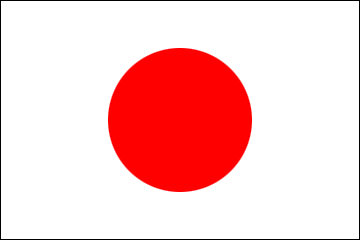Japanese Government (MEXT) Postgraduate Scholarships
MEXT Alumni Personal Experiences
Graham Healey - Waseda University from 1964 to 1966
Mr Graham Healey was on the scholarship from 1964-1966 and was one of the first MEXT Scholars from the UK. He studied the Japanese language and early twentieth century Japanese literature at Waseda University, Tokyo.
What prompted you to apply for the scholarship?
During my degree course in Chinese I had done a little Japanese and wanted to improve my knowledge of the language and understanding of the culture. I was born in 1941, a few months before Pearl Harbor, and was ten when the San Francisco Peace Treaty was signed, so my early childhood was spent at a time when relations between Britain and Japan were at their all-time nadir. When I was about ten my grandfather astonished me by speaking of the Japanese, whom I and my friends regarded as the enemy, in complimentary terms - 'great fighters, the Japanese'. It was only years later that I realised that his view of Japan (he was born in 1865) had been formed during the period of the Meiji Restoration, the Russo-Japanese War and the Anglo-Japanese Alliance, when the atmosphere in Britain was extremely pro-Japanese. Whether this planted a seed in my mind, I don't know.
As a MEXT Scholar what did you experience that you wouldn't have been able to otherwise?
Life as a student in Japan at an extremely interesting time in Japanese universities. The first sign of the 'student troubles' of the late 1960s were apparent by 1966, and they were in full swing when I spent another year in Japan in 1968-69. My current students are most impressed to see photographs I took at the time of helmeted paramilitary student groups drilling on the campus of Tokyo University and posing in dramatic fashion on top of barricades across the streets made of desks and chairs dragged out from the Chuo University campus near Ochanomizu.
What was studying at a Japanese University like?
Rather different from a British university. The first thing we learned was the Waseda school song - which proved in later years to be very useful when I was asked to sing at parties or in karaoke bars (not invented until many years later). Everybody in Japan knows this rousing song, so as soon as I'd got the first line out everybody would join in, thus covering up my terrible singing! Most male students in those days still wore the traditional black uniform with standup collar and diamond-shaped cap. Classrooms were heated, if at all, with hibachi (charcoal braziers). Classes were very formal.
What impact has your time as a MEXT Scholar had on your career?
It determined the whole course of my life. I have spent the last 45 years studying and teaching Japanese language, history and politics. I am now, in my last year or two before finally retiring, teaching scientific Japanese to students in the University of Sheffield's Chemistry and Materials Engineering departments.
What advice would you give to prospective applicants, especially those who may not have been to Japan before?
Go for it - the Japanese are the most welcoming people in the world, and if you positively embrace the opportunity to learn a non-European language and experience a new culture, your whole outlook on the world, and your conception of what the possibilities of being human are, will be fundamentally changed.


